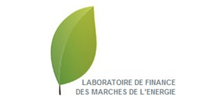Summer School on « Distributed Control: Decentralization and Incentives »
Contrôle Distribué : Décentralisation et Incitations
14 – 18 June, 2021
|
Scientific Committee
Comité scientifique René Aïd (Université Paris Dauphine) |
Organizing Committee
Comité d’organisation Clémence Alasseur (FIME) |
|
We are living in an era of technology explosion. While resources, products and information become increasingly accessible to common users, the individuals nowadays are more aware than ever of their own right, and more capable than ever of deciding for their own good. This trend forces the old organization governing the social welfare to adapt. Eventually we ask how to balance the individual fairness and the global goodness. The social planners would have no choice but decentralize their power of managing globally, and leave the decisions to individuals. Meanwhile, they still keep the resource and have the duty to offer the individuals the right incentives in order to keep the society on the right track.
The applied mathematics community is eager to participate and contribute to this social transition. We realize that many mathematical tools, such as control theory, game theory and machine learning, are already available or under quick development for related applications. In this summer school, we would like to gather the leading researchers and young research fellows on contract theory, mean field games, high-dimension learning and so on, to allow them exchange their understandings of how to design the incentives to lead an efficient decentralization. Also, we would like to hear from the practitioners of energy market, telecommunication, finance and so on, what the real challenge we face. The mathematics materials we select for the summer school would be those developed during the last five years, and we believe, becoming the objects of intense research in the upcoming years, so that they represent both the new mathematical perspectives and the pertinent ideas in terms of applications. |
Nous vivons dans une époque d’explosion technologique. Alors que les ressources, les produits et les informations deviennent de plus en plus accessibles aux utilisateurs habituels, les individus sont aujourd’hui plus conscients que jamais de leur propre droit et plus capables que jamais de décider pour leur propre bien. Cette tendance oblige l’ancienne organisation sociale à s’adapter. Eventuellement, nous nous demandons comment équilibrer la justice individuelle et la qualité globale. Les planificateurs sociaux n’auraient d’autre choix que de décentraliser leur pouvoir de gestion globale et de laisser les décisions à chacun. En même temps, ils conservent toujours la ressource et ont le devoir d’offrir aux individus les bonnes incitations afin de maintenir la société sur la bonne voie.
La communauté de mathématiques appliquées est passionnée de participer et de contribuer à cette transformation sociale. Nous sommes conscients que de nombreux outils mathématiques, tels que la théorie de contrôle, la théorie des jeux et l’apprentissage automatique, sont déjà disponibles ou en cours de développement rapide. Dans cette école d’été, nous aimerions réunir les chercheurs bien connus et jeunes étudiants sur la théorie des contrats, les jeux à champ moyen, l’apprentissage de haute dimension, etc., afin de leur permettre d’échanger leurs connaissances sur la conception des incitations pour une décentralisation efficace. Nous aimerions également écouter des spécialistes du marché de l’énergie, des télécommunications et de la finance pour connaitre le véritable défi auquel nous sommes confrontés. Les matériaux mathématiques que nous choisissons pour l’école d’été seraient ceux qui ont été développés au cours des cinq dernières années, ou ceux qui feront l’objet d’intenses recherches dans les années à venir, de sorte qu’ils représentent à la fois les nouvelles perspectives mathématiques et les idées pertinentes en termes d’applications. |
Pierre Cardaliaguet (Université Paris-Dauphine) Mean-Field Games
Dylan Possamaï (ETH Zurich) Principal Agent Modelling
Romuald Elie (Deepmind & Université Gustave Eiffel) Reinforcement Learning / Statistical Learning
Merouane Debbah (Centrale Supelec & Huawei Technologies) Managing Telecommunications Networks
Nadia Oudjane (EDF R&D) Distributed Optimisation for Decentralized Electrical Systems
Henri-Labordère (Natixis) Applications to Finance
Daniel Bartl (University of Vienna) Paper session Machine Learning Part 1
Erhan Bayraktar (University of Michigan) Paper session MFG 1 – Part 2
Charles Bertucci (CNRS – CMAP, Ecole Polytechnique) Paper session MFG 2 – Part 2
Hector Calvo-pardo (University of Southampton) Paper session Finance – Part 2
Giovanni Conforti (CMAP, École Polytechnique) Paper session MFG 2 – Part 2
Christa Cuchiero (University of Vienna) Paper session Finance – Part 1
Gokce Dayanikli (Princeton University) Paper session MFG 1 – Part 1
Roxana Dumitrescu (King’s College) Paper session MFG 1 – Part 1
Zineb El Filai Ech-Chafiq (Natixis) Practitioners session (4) Applications to Finance
Emma Hubert (Imperial College London) Paper session Principal-Agent – Part 1
Mathieu Lauriere (Princeton University) Paper session MFG 2 – Part 1
Joseph Mikael (EDF Lab) Paper session Finance – Part 2
Julien Pérolat (Deepmind) Statistical learning
Mehdi Talbi (Ecole Polytechnique) Paper session MFG 1 – Part 2
Xiaolu Tan (Chinese University of Hong Kong) Paper session Principal-Agent – Part 1
Ludovic Tangpi (Princeton University) Paper session MFG 2 – Part 1
Hao Xing (Boston University) Paper session Principal-Agent – Part 2
Junjian Yang (University of Vienna) Paper session Principal-Agent – Part 2





